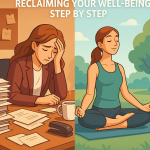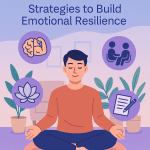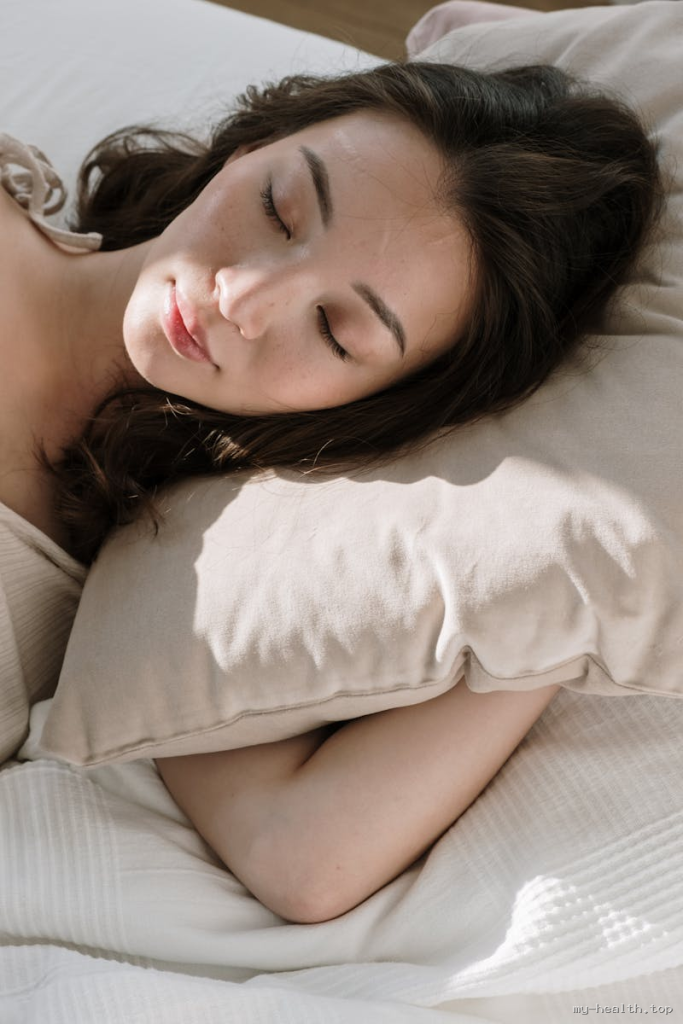This article is for informational purposes only and should not be considered medical advice. Always consult a healthcare professional for medical concerns.
The Intricate Link Between Sleep and Mental Health
Have you ever noticed how a poor night’s sleep can leave you feeling irritable or anxious the next day? Research increasingly shows that sleep and mental health are deeply intertwined. Understanding this connection can empower you to improve both your sleep quality and your mental well-being.
The Science Behind Sleep and Mental Health
Sleep is not just a time for rest; it’s a critical period for your brain to process emotions and consolidate memories. According to the National Institutes of Health (NIH), sleep plays a vital role in emotional regulation. When you sleep, your brain undergoes various stages, including REM (rapid eye movement) sleep, which is essential for emotional processing. During REM sleep, the brain engages in memory consolidation and emotional regulation, allowing you to process experiences and emotions from the day.
How Sleep Affects Mental Health
Sleep disturbances can exacerbate existing mental health conditions such as anxiety and depression. A study published in PubMed found that individuals with insomnia are five times more likely to develop depression compared to those who sleep well. Furthermore, sleep deprivation can lead to increased levels of cortisol, the stress hormone, which can further impact mental health. Chronic sleep deprivation can also impair cognitive function, leading to difficulties in concentration and decision-making.
Pathophysiology of Sleep Disorders
Understanding the pathophysiology behind sleep disorders reveals how they can impact mental health. For example, in insomnia, the body’s stress response may be hyperactive, leading to difficulty falling asleep or staying asleep. This hyperarousal can create a vicious cycle, where anxiety about not sleeping leads to further sleep disruption. Similarly, sleep apnea, characterized by repeated interruptions in breathing, can lead to fragmented sleep and reduced oxygen supply to the brain, contributing to mood disorders. The constant struggle for breath during sleep can trigger physiological stress responses, further exacerbating anxiety and depression.
Common Sleep Disorders and Their Mental Health Implications
Several sleep disorders can negatively affect mental health:
- Insomnia: Difficulty falling or staying asleep can lead to chronic fatigue, irritability, and heightened anxiety. Insomnia can also contribute to a sense of helplessness and frustration, further aggravating mental health issues.
- Sleep Apnea: This condition, characterized by interrupted breathing during sleep, can lead to excessive daytime sleepiness and has been linked to depression. The frequent awakenings can prevent deep sleep, which is crucial for emotional recovery.
- Restless Legs Syndrome: This disorder causes uncomfortable sensations in the legs, leading to sleep disruption and increased anxiety levels. The discomfort can create a cycle of anxiety around sleep, worsening the condition.
Improving Sleep Hygiene for Better Mental Health
Improving your sleep hygiene can have a significant positive impact on your mental health. Here are some effective strategies:
- Establish a Sleep Schedule: Go to bed and wake up at the same time every day, even on weekends. This helps regulate your body’s internal clock, making it easier to fall asleep and wake up naturally.
- Create a Relaxing Bedtime Routine: Engage in calming activities like reading or meditation before bed to signal to your body that it’s time to wind down. Consider incorporating deep breathing exercises or gentle yoga stretches to further enhance relaxation.
- Limit Screen Time: Reduce exposure to screens at least an hour before bed, as the blue light emitted can interfere with melatonin production. Instead, consider reading a book or listening to soothing music.
- Optimize Your Sleep Environment: Keep your bedroom dark, cool, and quiet. Consider using blackout curtains or white noise machines if necessary. A comfortable mattress and pillows can also greatly improve sleep quality.
- Avoid Stimulants: Limit caffeine and nicotine intake, especially in the afternoon and evening, to promote better sleep. Herbal teas like chamomile or valerian root can be good alternatives.
- Exercise Regularly: Engaging in regular physical activity can help you fall asleep faster and enjoy deeper sleep. However, try to avoid vigorous exercise close to bedtime.
Patient Vignette: Sarah’s Journey to Better Sleep
Sarah, a 32-year-old marketing professional, struggled with anxiety and poor sleep for years. After realizing her insomnia was worsening her mental health, she sought help. With the guidance of a sleep specialist, she established a regular sleep schedule and incorporated relaxation techniques into her nightly routine. She learned about the importance of sleep hygiene and made changes to her environment, such as reducing screen time and creating a calming bedtime atmosphere. Within weeks, Sarah noticed a significant improvement in her mood and energy levels. Her journey underscores the importance of addressing sleep issues for better mental health.
Myth vs. Fact
| Myth | Fact |
|---|---|
| All sleep is the same. | Different sleep stages serve various functions; REM sleep is particularly crucial for emotional health. |
| You can catch up on sleep during the weekends. | Irregular sleep patterns can disrupt your circadian rhythm and affect mental well-being. |
| Sleep problems are just a normal part of aging. | While sleep patterns can change with age, persistent sleep issues should be addressed with a healthcare provider. |
| More sleep is always better for mental health. | While adequate sleep is crucial, oversleeping can also be linked to mental health issues such as depression. |
Frequently Asked Questions
1. How many hours of sleep do I need for good mental health?
Most adults require between 7 to 9 hours of sleep per night for optimal mental and physical health. However, individual needs may vary based on lifestyle and health conditions.
2. Can improving my sleep help with anxiety?
Yes, better sleep can reduce anxiety symptoms and improve overall emotional regulation. Sleep allows your brain to process emotions effectively, which can alleviate feelings of anxiety.
3. What should I do if I can’t sleep?
If you struggle to fall asleep regularly, consider consulting a healthcare provider to discuss potential underlying issues. Cognitive-behavioral therapy for insomnia (CBT-I) is a highly effective treatment option.
4. Are naps beneficial for mental health?
Short naps can be beneficial, but long naps may disrupt nighttime sleep, impacting overall sleep quality. Aim for a nap of 20-30 minutes if you need a boost during the day.
5. How does sleep affect my mood?
Inadequate sleep can lead to irritability, mood swings, and heightened stress levels, negatively impacting emotional health. Regular, restorative sleep is essential for maintaining a balanced mood.
6. Is it possible to train myself to sleep better?
Yes, with consistent sleep hygiene practices, you can train your body to sleep more effectively over time. By following a routine and making lifestyle adjustments, you can improve your sleep quality.
7. Can sleep medications help with mental health issues?
While sleep medications can be effective in the short term, they may not address the underlying causes of sleep disturbances or mental health issues. It’s essential to consult a healthcare provider for a comprehensive approach.
8. Is there a connection between sleep and PTSD?
Yes, sleep disturbances are common in individuals with PTSD. Poor sleep can exacerbate symptoms, creating a cycle that can be hard to break. Therapeutic approaches focusing on sleep can be beneficial in managing PTSD symptoms.
Conclusion
The connection between sleep and mental health is undeniable. By prioritizing sleep hygiene, you can enhance your emotional well-being and overall quality of life. If you’re struggling with sleep issues, don’t hesitate to seek professional help. Remember, better sleep leads to better mental health. Understanding and addressing the intricate relationship between sleep and mental health is a crucial step toward achieving a healthier, happier life.
Key Takeaways
- Sleep is crucial for emotional regulation and mental well-being.
- Insomnia can significantly increase the risk of developing depression.
- Establishing a consistent sleep schedule can improve sleep quality.
- Relaxation techniques before bed can enhance sleep hygiene.
- Addressing sleep disorders can lead to better mental health outcomes.
References
- National Institutes of Health (NIH) – Sleep and Mental Health
- PubMed – Insomnia and Depression
- World Health Organization (WHO) – Mental Health and Sleep
- Centers for Disease Control and Prevention (CDC) – Sleep and Health
- NHS – Sleep Disorders and Mental Health
- UpToDate – Sleep Hygiene and Mental Health
- American Psychological Association – Sleep and Mental Health
- Sleep Foundation – The Importance of Sleep for Mental Health








Post a comment